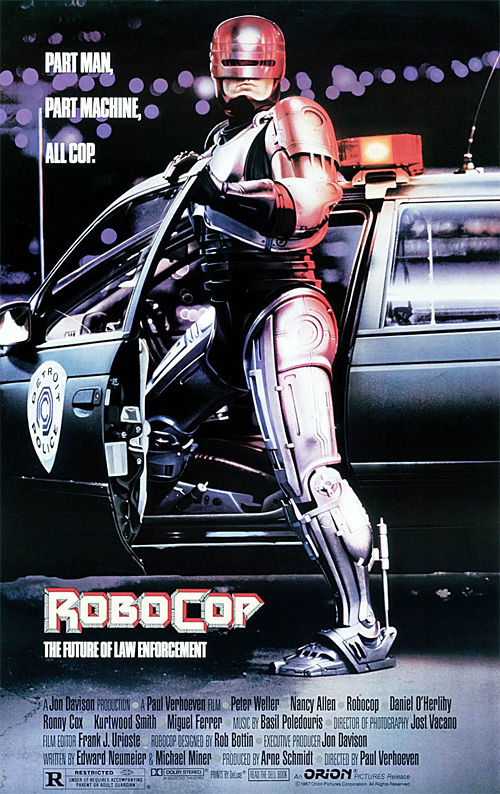Joe

Joe Cabot is the man in charge, the head honcho, the man with the plan. He is the criminal mastermind, the one planning numerous jobs. He seems to know everything and everyone. All of the guys like him; they kid with him and seem to have a good time with him. They also trust that his plan is thorough and efficient. Joe is not a man to mess with, though. Mr. Orange described him as like The Thing from Fantastic Four, and the description was a great one. Joe has the growling voice and the big person to make a person think twice about confronting him. He has an overpowering and competent cool.
Mr. Blonde

Mr. Blonde is complex. He is a tough, almost crazy guy. He seems like a loose cannon, one who is going to go his own way. Calling you out, Mr. Blonde will challenge you, but he won’t get in your face. He has a collected air about him, and he isn’t one to get angry or excited or anything beyond calm. There is one cool you would never expect from this man: loyalty. He did four years in prison for Joe when he could have betrayed Joe and gone free.
Mr. Pink

Mr. Pink is a confusion. He cares the most of the guys about being cool, but he just can’t gain that status. He tries to take on too many different types of cool: professional, macho and in your face, and a rebel. Throughout the movie, he is always exclaiming that the guys need to be professionals. He also defends his masculinity by complaining about being called ‘Mr. Pink’. Finally, he tries to stand out from the rest by making a big deal about tipping. He enjoyed and felt intelligent when he criticized something no one else did.
Mr. Orange

Mr. Orange is somewhat like Mr. Pink in that his cool is one he created. Unlike Allen in Play It Again, Sam, Mr. Orange is successful in acting like criminal. Everyone, even Joe until the end, is fooled by this undercover cop’s act.
Mr. White

Finally, Mr. White, my favorite character, is unlike any criminal type. He is caring, almost motherly. He cares the most about Mr. Orange when he is shot, and protects him when Joe is about to take Mr. Orange out. To a fault, Mr. White shows loyalty and compassion for those he takes under his wing. Him as a mother bear is a perfect image: he cares so much for his cub and is terribly fierce when danger jumps upon that cub.




 So, this week’s movie, Paris is Burning, was definitely an interesting one. I have seen perhaps one drag queen in my life (that I know of), and I really don’t know what I thought about that. I’m definitely ok with homosexuals (I mean, they are people, too), but seeing one where I couldn’t tell if the person was a he or she, that was…uncomfortable. And really, I am ignorant as to what to call them: he or she? I think we are all kind of lost when it comes to homosexuality, even the homosexuals. That is why this movie is interesting.
So, this week’s movie, Paris is Burning, was definitely an interesting one. I have seen perhaps one drag queen in my life (that I know of), and I really don’t know what I thought about that. I’m definitely ok with homosexuals (I mean, they are people, too), but seeing one where I couldn’t tell if the person was a he or she, that was…uncomfortable. And really, I am ignorant as to what to call them: he or she? I think we are all kind of lost when it comes to homosexuality, even the homosexuals. That is why this movie is interesting.





 Music is something I absolutely adore, and instrumental music is like candy to my ears. Popular music has some good qualities to it (goodness, I always have my radio going), but instrumental music, or the music without words and mostly involving string and brass instruments, is truly something special. Now, most people I talk to will listen to instrumental music if they are working on homework, but I wonder how many listen to it beyond that time. The longest playlist on my IPOD is instrumental music, and I even have other playlists devoted to soundtracks. Instead of David Cook or Barlow Girl playing, I will oftentimes listen to the Pirates of the Caribbean soundtrack on the way home. To me, instrumental music has an essence that can never be captured by a lead voice, and I hope to share this with others.
Music is something I absolutely adore, and instrumental music is like candy to my ears. Popular music has some good qualities to it (goodness, I always have my radio going), but instrumental music, or the music without words and mostly involving string and brass instruments, is truly something special. Now, most people I talk to will listen to instrumental music if they are working on homework, but I wonder how many listen to it beyond that time. The longest playlist on my IPOD is instrumental music, and I even have other playlists devoted to soundtracks. Instead of David Cook or Barlow Girl playing, I will oftentimes listen to the Pirates of the Caribbean soundtrack on the way home. To me, instrumental music has an essence that can never be captured by a lead voice, and I hope to share this with others.